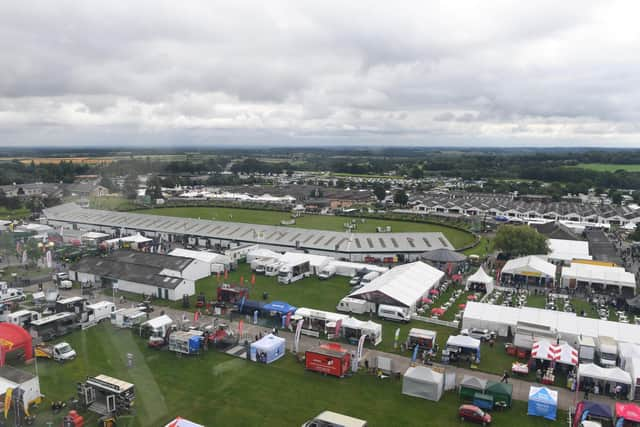Farmers across region using Great Yorkshire Show as urgent call for action to help farms fighting spiralling costs and supermarket profits
The region’s farmers are set to use The Great Yorkshire Show as a platform to raise concerns about spiralling costs and supermarket profits “screwing” small, independent operations.
It comes at a time when the country is in crisis as fuel, food and heating costs rocket for consumers, with farmers being doubly hit as they also struggle to pay for animal feeds, fertilisers and fuel for agricultural vehicles and machinery that are vital to business.
Advertisement
Hide AdAdvertisement
Hide AdAlready meetings have been lined up between the farmers, unions, suppliers and sellers to address the losses they are experiencing.


They are paid £1.88 per kilo for a 90kg pig, yet it costs £2.44 per kilo to produce - losing around £50 per animal. Supermarkets are using the same profit margins and there is not a UK supply chain for farms in terms of grain, feed and fertiliser so it is imported at high cost.
Ms Morgan said: “I love what I do, otherwise you wouldn’t do it but it has been really difficult, especially the last year where you realise how corrupt the supply chain is. You lose faith in what you are doing and why you are doing it. Supermarkets are keeping prices down for the consumer but not paying the cost of production and screwing us basically.
“The pig sector is in crisis. Over the last year and a half the industry has shrunk by 24 per cent. The people that we are losing are the independent farms. It is a real shame, it is what our countryside is about. Independent farmers care more about the environment, welfare of animals and employ local people. If we lose these, the economy and the community will see the impact of that.
Advertisement
Hide AdAdvertisement
Hide Ad“There are massive issues in the country but in farming there are big issues. There are meetings at the show looking at trying to sort out these issues. On face value, the GYS is a very positive showcase but for farmers - a lot will be going to try and sort the mess that is happening and get their voice heard.”
Carol Moffat farms at Thwaite Head in Garsdale within The Yorkshire Dales National Park. Over the last few months they have had to resort to stricter management and processes.
The family run a tenanted farm with about 180 acres of upland ground and rent another 100 on grazing licenses. They lamb 550 mainly Swaledale sheep of which 400 are put to the Bluefaced Leicester Tup to breed the North of England Mule and they also have a small flock of Bluefaced Leicester.
They have taken the extra land to give sheep more grass so they can cut down on bought feed and move the grass in less rotations than usual.
Advertisement
Hide AdAdvertisement
Hide AdThe price of fuel fertiliser and feed are the biggest issues at Thwaite Head, however, it is one of the 400 farms across the country that has worked with The Prince’s Countryside Fund on both its Farm Resilience and Farm for the Future programmes which explores different and more cost efficient and effective methods.
Ms Moffat said: “We have not had a show for two years, this is a great opportunity. The GYS is integral to farms working together, showing animals but getting talking again.
“We will be talking about Farm for the Future and Resilience programmes, our experiences and how that network has helped. Without that it makes it more difficult for organisations to deliver these projects.”

